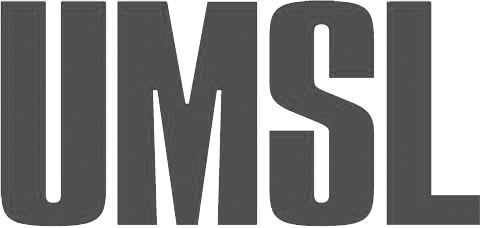Michelle Witthaus, Manager of Policy and Advocacy with Generate Health
This column was originally published in the St. Louis Post-Dispatch.
It is up to Gov. Mike Parson to protect the health and safety of Missourians. Thousands of Missouri families are suffering financial hardships because of the pandemic and are struggling to meet their basic needs for food, rent and utilities. To protect Missouri families and slow the spread of the virus, it is imperative that Parson implement a statewide utility disconnection moratorium that lasts through the current state of emergency.
In November, the governor issued an order extending Missouri’s state of emergency for the pandemic until March 31. The order followed the advice of state health officials and noted that action by the state is “needed to combat the public health threat caused by COVID-19 and to aid in Missouri’s recovery to this emergency.”
However, the effectiveness of the order is hamstrung without a utility shutoff moratorium. Without a moratorium, Missourians who are financially impacted by the pandemic may face utility disconnection during the most brutal winter months. With utilities shut off, families lack access to basic needs such as water, which is imperative to slowing the spread of the coronavirus. Without electricity or heat, many families will have no option but to temporarily seek shelter with relatives or friends, thus potentially exposing themselves to the virus. In some cases, utility disconnection can lead to eviction and homelessness.
At its meeting on Dec. 16, the Missouri Public Service Commission declined to implement a moratorium, stating it lacked authority under state law. Now only an order from the governor can provide relief to thousands of Missourians facing a worsening health crisis that has already claimed the lives of more than 6,000 Missourians. Only the governor can resolve this dire situation in time to alleviate the harm Missourians are facing.
State regulators have refused to act, and a voluntary disconnection moratorium by utility companies is insufficient. Only one Missouri utility, Evergy, has voluntarily implemented a moratorium on disconnections long enough (through March 1) to provide some relief to Missourians. Ameren implemented a moratorium that expired on Jan. 5, and Spire’s moratorium expired on Jan. 1, just after the holiday season. These expirations occurred while coronavirus cases were on the rise, hospitals were at or near capacity, and temperatures were dropping.
The governor can save lives by taking action now. A study recently published by Duke University documented how “electricity and water utility moratoria have played an important role in containing the COVID-19 pandemic,” and that they could help reduce the growth rate of the pandemic by as much as 5.7%. This is an extremely significant margin as the virus has infected more than 450,000 people in Missouri and more than 18 million across the country.
Missouri’s unemployment rate has not fully rebounded to pre-pandemic rates, thus creating an obvious need for additional interventions this winter season. Since declaration of the pandemic emergency, the United Way has fielded 31,000 calls from the St. Louis region requesting housing assistance — a 50% increase over last year and 26,000 requests for utility assistance.
A moratorium on utility shut-offs is essential to helping Missouri families get through this crucial moment when cold temperatures make heating and electricity necessary to shelter in place, a recommendation the governor and state agencies have stressed is key to slowing the spread of the virus. While assistance programs such as Low Income Home Energy Assistance Program and federal funding are helping to ease the burden, they are insufficient. A halt to utility disconnections is a quick, proactive measure that will immediately provide relief for impacted Missourians.
On Nov. 3, over 1.7 million Missourians voted to keep Gov. Parson in office. Those voters did so believing that he would act in the best interest of all Missourians and lead us out of this troubling time. Now is the time for Parson to show us the leadership that Missourians expect and to use the power he holds in office to keep families safe this winter and slow the spread of the coronavirus.
***
Michelle Witthaus is the Manager of Policy and Advocacy at Generate Health where she focuses on implementing policy and advocacy strategies that advance Generate Health’s mission of advancing racial equity in pregnancy outcomes, family well-being and community health. In Michelle’s previous role as the Program Manager for Health Equity Works, she helped lead the project’s strategic partnerships and community-centered initiatives with an emphasis on creating systemic change. Michelle has a diverse background in education, community organizing, and philanthropy. In 2013, Michelle launched an initiative called Participatory Budgeting–St. Louis, which aimed to bring about a more democratic way of spending public money in the 6th ward. At the time of inception, St. Louis was the fourth city in the United States to implement this inclusive process. Michelle is a proud City resident and has called St. Louis home for the last 25 years.
***
Articles in “From the Field” represent the opinions of the author only and do not represent the views of the Community Builders Network of Metro St. Louis or the University of Missouri-St. Louis.
We invite readers to contribute to the civic conversation about community development in St. Louis by writing an op-ed for the Community Builders Exchange. Op-eds should be short (400-700 words) and provocative. If you have an idea for an op-ed, contact Jenny Connelly-Bowen at jenny@communitybuildersstl.org.







